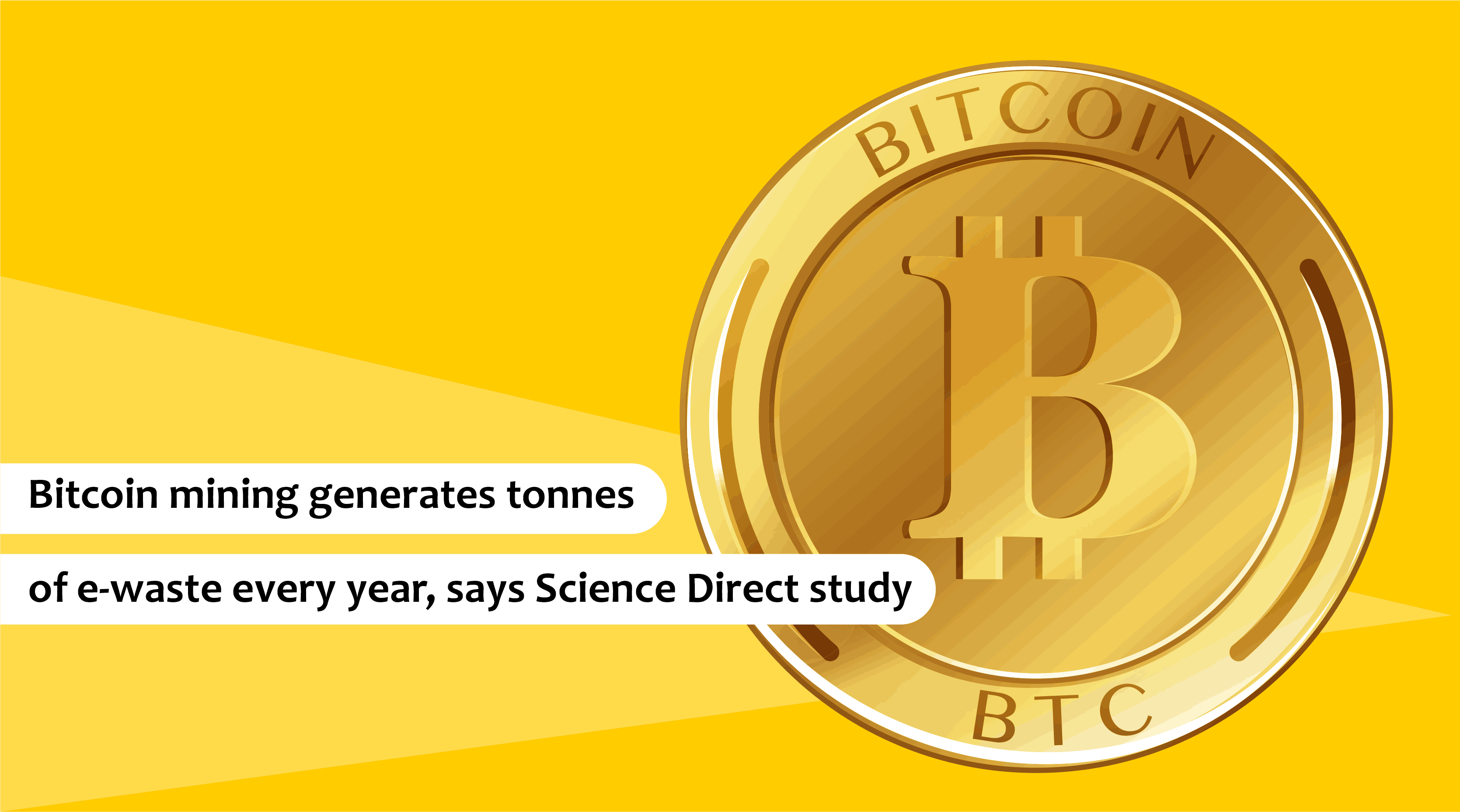A new study in the Resources, Conservation and Recycling Journal of the Science Direct has revealed an astonishing finding that Bitcoin mining generates 30.7 metric kilotons of e-waste as of May 2021. This level is close to the small IT waste equipment generated by countries such as the Netherlands, the journal reports.
The journal says that the peak Bitcoin price level as observed in May 2021, the yearly e-waste may hit past 64.4 metric kilotonnes in the midterm, which highlights the aggressive trends if the Bitcoin price sore further.
The journal conceded that E-waste poses a growing threat to the environment releasing toxic chemicals and metals into soils and polluting air and water due to improper recycling.
The miners make money by making new Bitcoins, but computing uses up huge amounts of energy.
Based on an average number of transactions, that is two transactions, Bitcoins create waste equivalent to a disposed of iPad, says Alex de Vries, a cryptocurrency economist and a lead author of the study.
De Vries pointed out that computers that are used for Bitcoin mining have become obsolete. Thus the average shelf life of the powerful computers used to uncover Bitcoin is just 1.29 years, and this extremely short life span is far less than any other electronic device such as the iPhone.
Elaborating on the hardware waste that is inevitable with Bitcoin mining, the research reveals that Bitcoin miners use specialized chips called Application-specific Integrated Circuits (ASICs) that help to cut electricity expenses of Bitcoin mining.
The ASICs are so specifically designed that they are not reusable for some other tasks or even some other Bitcoin mining algorithm.
Apart from these chips, the other components that form part of the Bitcoin mining equipment, such as the metal casinos and aluminum heat-sinks, are recyclable. But only 17% of e-waste is recycled in the world. To top that, in some countries where most miners operate, due to poor e-waste regulations, the degree of recycling could be even less than the average 17%.
The growing Bitcoin prices are likely to fuel further investments into Bitcoin and rapid replacement of the ASIC chips. The miners are under pressure to run the latest, fastest, and energy-intensive computer chips due to the competition leading to frequent disposal of old chips, creating a lot of e-waste.
The report suggests that one way to curb Bitcoin mining generates e-waste is to replace the transaction verification with a less computing-intensive system. The new mining method called ‘proof-of-stake consumes less energy and can be done on regular computers. The ‘proof-of-work principle contemporarily used is energy-intensive and needs specialized computing.



